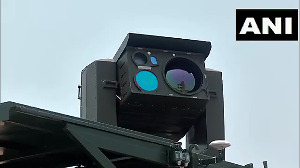'The PAYD model adjusts the premium based on your driving habits. If you drive less, you pay less.'

Customers in India are gradually warming up to pay-as-you-drive (PAYD) motor insurance plans.
According to a recent study by Policybazaar.com, more than one in three of their customers opt for PAYD plans.
Among those who have already bought the plans, three out of four renew them, indicating a gradual shift in preference towards personalised coverage.
- You can post your insurance related questions HERE
How does it work?
A standard motor insurance plan has no cap on the number of kilometres (kms) a customer can drive.
"In a PAYD plan, customers opt for a predefined number of kilometres. For instance, someone with the minimal requirements can opt for 2,500 kms, while those with higher needs can opt for higher slabs going up to 10,000 kms," says Nitin Kumar, head-motor insurance, Policybazaar.com.
If the kilometres purchased get exhausted, customers can top up.
Players like Go Digit offer PAYD as an add-on.
"The customer simply needs to share a photo of the odometer reading. If the car, on average, has been driven less than a specified number of kilometres (say, 12,000 kms per year), it automatically becomes eligible for the PAYD discount," says Mayur Kacholiya, product head-motor, Go Digit General Insurance.
Low premium for low usage
In a standard motor policy, all customers pay the same premium, irrespective of whether they drive 5,000 or 35,000 kms.
"The PAYD model adjusts the premium based on your driving habits. If you drive less, you pay less," says Pooja Yadav, chief product officer, Zuno General Insurance.
Kacholiya says many vehicle owners do not use their vehicles intensively.
The savings in a PAYD plan depend on the kilometre slab.
"If the own damage cover plus add-ons cost Rs 10,000 in a standard plan, opting for the lowest 2,500-km band can save around Rs 4,500," says Kumar.
"For the 5,000-km band, the savings are around Rs 3,500. The 7,500-km band offers savings of around Rs 2,500, and the 10,000-km band can save you approximately Rs 1,500 to Rs 2,000," adds Kumar.
Kacholiya informs that a customer could get a discount of up to 25 per cent on own-damage premium, with the exact number depending on the kilometres driven annually.
"Customers are not charged for the installation of telematics devices. PAYD also promotes better driving habits through data-driven safety measures," says Yadav.
The kilometre cap does not apply to total loss, theft, and third-party cover, Kumar adds. Some players, like Go Digit, do not charge their customers an extra premium even if the annual cap is exceeded.
Keep an eye on the odometer
PAYD plans are not beneficial for those with high annual usage. According to Yadav, customers with risky driving habits will also not be eligible for the PAYD discount.
Customers must keep an eye on the number of kilometres driven.
"After you have exhausted your limit, insurers offer a few kilometres as grace. If you exhaust them and then meet with an accident, your claim will not be admissible if you have not topped up," says Kumar.
Is it for you?
Kumar recommends PAYD plans for those driving under 10,000 kms annually.
Infrequent drivers, including college students, older couples, city residents with good public transport, households with multiple vehicles, hybrid workers, and those living in smaller towns with few intercity trips will also find them beneficial.

- You can post your insurance related questions HERE
Disclaimer: This article is meant for information purposes only. This article and information do not constitute a distribution, an endorsement, an investment advice, an offer to buy or sell or the solicitation of an offer to buy or sell any securities/schemes or any other financial products/investment products mentioned in this article to influence the opinion or behaviour of the investors/recipients.
Any use of the information/any investment and investment related decisions of the investors/recipients are at their sole discretion and risk. Any advice herein is made on a general basis and does not take into account the specific investment objectives of the specific person or group of persons. Opinions expressed herein are subject to change without notice.
Feature Presentation: Ashish Narsale/Rediff.com












 © 2025
© 2025